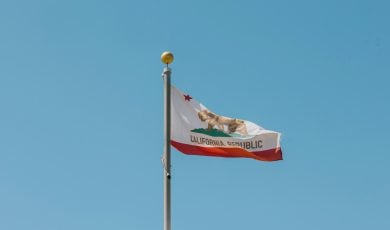It’s now a guarantee that the Supreme Court of the United States (SCOTUS) won’t decide in the coming days whether to hear an appeal of a lawsuit over the legality of online sports betting in Florida. A recent decision by the Court may mean that its decision on whether to take up that appeal will not be forthcoming anytime soon.
The US Supreme Court has given the US Dept. of Justice (DOJ) representing the Dept. of the Interior (DOI) until May 13 to file its response to the petition for the Court to review the case. SCOTUS won’t issue a decision on the petition until then.
DOJ gets more time to respond to appeal petition
A decision from the Supreme Court of the United States on this matter, West Flagler Associates, et al v. Deb Haaland, et al has been pending since the petitioners filed their appeal with the Court in February 2024. On April 5, the Court gave Justice another month and a day to file its response to that petition. The deadline had been Friday.
While it’s uncertain whether Justice will wait to produce that brief until May 13, that extra time for Justice means a potential delay for SCOTUS’ judgment on the petition. An announcement on whether it will review the case could come at any point after Justice files its response.
A quick decision on whether to grant the petition may not be favorable for the petitioners in this case. The issues in the matter before the Court involve the legality of online sports betting in Florida which is ongoing with the premise of potential future online casino play in the state.
What West Flagler v. Haaland is all about
To understand the stakes in this case, it’s important to know the backstory and parties. The petitioners operate off-track betting sites in Florida. Haaland is the current US Secretary of the Interior. The DOI oversees tribal gaming that is governed by compacts through its Bureau of Indian Affairs (BIA) under the Indian Gaming Regulatory Act (IGRA) of 1988.
Thus, a tribal gaming compact really has three parties: the tribal authority involved, the state that authority negotiates the compact with, and the US federal government through the DOI. In this relationship, the BIA’s role is to ensure that the compacts comply with all federal laws.
The DOI signed off on an amendment to the compact between Florida and the Seminole Tribe of Florida in 2021. That amendment gave the Seminole Tribe the freedom to add certain table games at its brick-and-mortar casinos. In addition, it essentially handed the Seminole Tribe control over legal sports betting in the state.
West Flagler took issue with that, as it would require them to meet the Seminole Tribe’s terms if they wanted to offer sports betting to guests. They sued Haaland in federal court in Washington, DC. Their lawsuit argued that the compact’s allowance for online sports betting everywhere in Florida violated the tenets of IGRA and thus, the BIA erred when it approved the amendment under Haaland’s watch.
While the trial court originally found for the petitioners, the appellate court reversed that ruling. That’s the decision that is on appeal to SCOTUS right now. Should the Supreme Court deny the petition to review, the appellate court’s decision would be final.
There are other possibilities, like West Flagler’s ultimate hope that SCOTUS will hear the appeal and reverse the existing order. To whatever end, the US Supreme Court’s action will wrap up the federal case. It may not be the final word on this matter entirely, though.
SCOTUS denial likely triggers state action
While the petitioners’ options at the federal level are few, they have not yet begun to fight in Florida. They are essentially waiting to see what the US Supreme Court decides before they challenge the compact in state courts.
West Flagler has already given a preview of what its arguments to Florida courts will be. They asked the Florida Supreme Court to circumvent the usual process and immediately consider their case in November. However, the highest court in Florida denied that request in March.
Instead, West Flagler will have to follow the normal route and file its challenge in a lower state court. In their filing, the petitioners asserted that the compact amendment violates the Florida Constitution because it represents an expansion of gaming that took place without a public referendum.
When SCOTUS makes its decision on the federal level, West Flagler could initiate the process in Florida courts. That is more likely to happen quickly if the US Supreme Court declines the appeal. However, a favorable decision in that regard wouldn’t preclude West Flagler from filing a separate challenge on the state level.
Suffice it to say that even in the instance of an appeal denial from SCOTUS, the legality of the current framework for online sports betting in Florida may not be completely settled for quite some time yet. That, in turn, could mean delays for any consideration of online casino play in the state.
Years may pass before online casino conversations occur
The Hard Rock Bet app in Florida currently only offers sports wagering. However, it does have an online casino product that is active in New Jersey. In Florida, online casino play for real money remains illegal.
The fate of this compact amendment narrowly governing online sports betting in Florida could have broad implications for the premise of online casino play in the state. If any court ultimately invalidates the amendment, the prescribed course to address that deficiency would set a template for expansion to online casino apps.
By the same token, courts’ indifference to or upholding the amendment could dictate that Florida and the Seminole Tribe could simply repeat the process when it comes to online casino games. At that point, it would come down to the parties’ appetite for such expansion.
That appetite might not be robust in the short term. At the same time, the Seminole Tribe may want to get out ahead of the situation and ensure that it has control over online casino play in Florida. Either way, all future decisions hinge on a forthcoming announcement from the Supreme Court of the United States.
That announcement is now more likely to come later rather than sooner.
Related Article: How Much Revenue Could Florida Online Casinos Generate?








